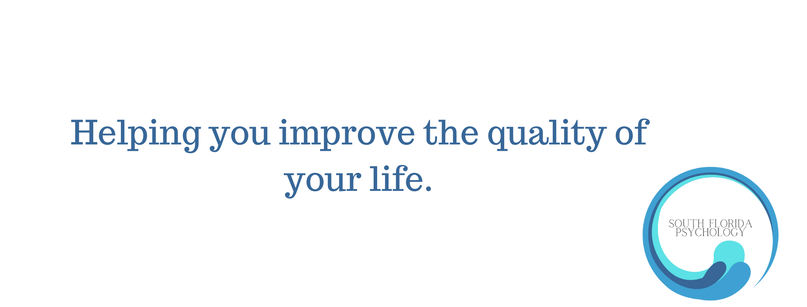|
I was raised in a strict religious family that highly valued service to the community and spreading Catholic morals and ethics. When I was 16, our family joined with three other families to form a religious community, but it quickly disbanded a few years later because we did not have the social/emotional/communication skills to collaborate and work together in an egalitarian manner.
When I became an adult, I began to question my religious beliefs. I was having difficulty believing that I would go to hell simply by not espousing certain beliefs. I also did not believe that love and acceptance should be conditioned by certain behaviors. I realized that trying to be what someone else wanted me to be was not going to lead to happiness, self-actualization or self-fulfillment. So, after graduating with a nursing degree at age 21, I moved away from my family and went out on my own, continuing my passion for service by becoming a critical care nurse. Feeling disconnected from my family, and trying to please everyone but myself, I became depressed and sought psychological treatment. That is when I initially learned about the process of Nonviolent Communication, or NVC (although they didn't call it that, at the time). Through therapy and journaling, I slowly learned to identify my feelings and communicate them to others in a more honest yet kind way. With my depression abating, I became passionate to learn how to help others overcome depression. I became a clinical psychologist and have been working as a therapist for the past 30 years. In my years of psychological training from 1990 to 1995, I learned about different psychotherapeutic modalities (cognitive-behavioral, Rogerian, psychodynamic, behavioral), but never learned about Marshall Rosenberg’s NVC. In spite of that, since becoming a therapist, I have often used the “I statement” forms and list of feelings that I was given in my own treatment, not knowing where they came from. About 8 years ago, I began a daily mindful meditation practice that greatly enhanced my ability to identify my thoughts, emotions, and body sensations. I became less tense, and more compassionate towards myself. Empowered to help others do the same, I then received training to become a mindful meditation teacher and self-compassion instructor, hoping to spread the seeds of mindfulness to as many people I could reach. About 2 years ago, a friend of mine recommended Marshall’s book, “Nonviolent Communication: A language of life”. She told me how the book improved her ability to talk to her step-daughter. Reading the book was like coming home! Finally, everything became clear; (1) mindfulness can help a person become more aware of their thoughts, feelings, and body sensations, (2) mindful self-compassion can give you the inner resources to process painful thoughts and emotions, and (3) NVC can help you communicate those thoughts and feelings to others in a way that is honest yet kind at the same time. I truly believe that if everyone practiced mindfulness, self-compassion and NVC, there would be much more equality and harmony in this world.
40 Comments
 In 2017, I attended a 7-day silent retreat led by Tara Brach, Jonathan Foust, Ruth King and Pat Coffey at the Insight Meditation Community of Washington (IMCW). On day one, they asked us to set our intentions. What do we want to get out of the retreat? To be honest, my first thought was that I really wanted to lose some weight on this trip! It had been a very stressful few months, and I am a stress eater, so…I was feeling badly for having gained a few pounds lately. Not that I knew for sure, because I stopped weighing myself years ago, in an attempt to be a more mindful eater and more in touch with internal cues than external ones. Having this thought, I immediately felt shame…you’re a mindful eating teacher, and you are still focused on food and weight? Noticing judging mind… On day # 2, during a meditation, we were encouraged to inquire further when negative thoughts or emotions surfaced. Instead of just noticing them, not judging them, and then refocusing on your object of attention, they encouraged us to “Take your demons to tea”. This was based on an old Tibetan myth. "Milarepa was a loner who lived in a cave by himself and meditated wholeheartedly for years. He was extremely stubborn and determined. One evening, Milarepa returned to his cave after gathering firewood, only to find it filled with demons. They were cooking his food, reading his books, and sleeping in his bed. They had taken over the joint! He did not know how to get these guys out of his cave. Even though he had a suspicion they were just a projection of his own mind—all the unwanted parts of himself—he did not know how to get rid of them. He first tried to teach them the dharma. He talked about compassion. Nothing happened. The demons were still there. Then he lost his patience and got very angry and ran at them. They just laughed at him. Finally, he gave up and just sat down on the floor saying, 'I am not going away and it looks like you are not either, so let us just have tea.' At that point, all of them left except one" (this excerpt written by Pema Chodron). Once we could do that, we were encouraged to practice R.A.I.N. Here is what happened to me. R: Recognize what is going on. I subsequently sat down for the 9:30 a.m. meditation. Noticing thoughts, feelings, body sensations. Then, a thought entered, “Your hair is a mess!” Then another, “You’re too fat”. Then another, “Your belly is too big”. A: Allow the experience to be there, just as it is. Allowing these thoughts in, I began to scan my body for any sensations connected to them. I began to feel a pain in my stomach, which became more intense the more I focused on it. As the moments passed, I began to feel like I had just been punched in the gut. I felt my throat tightening, like I was going to cry. I checked in with my emotions. I felt hurt by the terrible things I said to myself. It never occurred to me before that I was so abusive with these God awful statements! I would never say these things to my worst enemy! I: Investigate with kindness. Allowing myself to stay with the unpleasant, I began to investigate. When did I first begin to have these thoughts about my weight? I thought back how, in my first year of nursing school, I was very shy and struggled to fit in. I figured that if I were thin, people would accept me. If I were thin, people wouldn't judge me. If I were thin, I would get a boyfriend and wouldn't be lonely. Huh. I realized that these negative thoughts, however punitive, were adaptive at a time when I had very few coping skills. They were used to keep me "in line" so I would not feel rejected or abandoned. I had felt those feelings before, and I did not want to feel them again. N: Non-identification of the experience. Becoming aware that these automatic, once adaptive, negative thoughts are just thoughts has been very helpful. They no longer define me. Now, I am making a concerted effort to notice these body bashing thoughts whenever they occur, allow them to be there, and know they are just echos from the past that no longer serve me. I also made a promise to trust my body to tell me when to eat (when hungry), and to stop eating (when satisfied). Things fundamentally shifted for me that day, and I now find that those thoughts come around less often. That feels nice. Now, in 2020, I am grateful for |
Sharon M TherouxLicensed psychologist, neuropsychologist, mindful meditation teacher. ArchivesCategories |
HoursM-F: 9am - 5pm
|
Telephone561-395-0243
|
|

 RSS Feed
RSS Feed